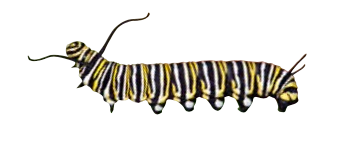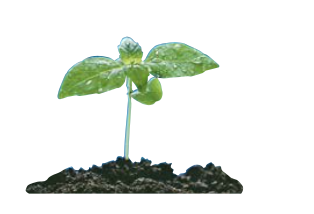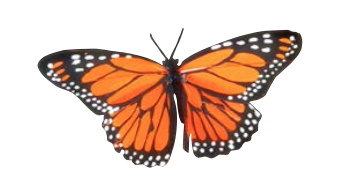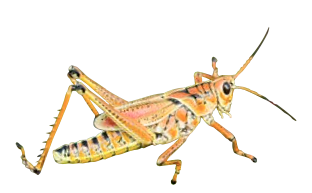
LIFE CYCLES
Authored by MA VIC BRONDIAL
Science
4th Grade
NGSS covered
Used 277+ times

AI Actions
Add similar questions
Adjust reading levels
Convert to real-world scenario
Translate activity
More...
Content View
Student View
13 questions
Show all answers
1.
MULTIPLE CHOICE QUESTION
20 sec • 5 pts
Living things go through several ______ in their life cycles.
places
parts
stages
years
2.
MULTIPLE CHOICE QUESTION
10 sec • 5 pts
Which of the following developmental growth stages is NOT characteristic of the YOUNG stage?
Childhood
Middle Age
Baby
Adolescence
3.
MULTIPLE CHOICE QUESTION
10 sec • 5 pts
Which of the following organisms goes through the ADULT stage?
Animals
Humans
Plants
All of the choices
4.
MULTIPLE CHOICE QUESTION
20 sec • 5 pts

What is one (1) common similarity in the life cycle of these two animals?
They both lay eggs on leaves and stems of plants.
They both have 4 stages.
They both have 3 stages
They both lay eggs in stagnant water.
5.
MULTIPLE CHOICE QUESTION
20 sec • 5 pts
During the GERMINATION process of the plant, what does the seed need so it will develop into a young plant?
WATER, AIR, and FOOD from the seed itself.
WATER, AIR, LIGHT
LIGHT, WATER and FOOD from the seed itself.
WATER, AIR, and HEAT and FOOD from the seed itself.
Tags
NGSS.MS-LS1-5
NGSS.MS-LS2-1
6.
MULTIPLE CHOICE QUESTION
20 sec • 5 pts

Which of the following should be inside the box to complete the life cycle of a butterfly?




Tags
NGSS.3-LS1-1
NGSS.3-LS4-2
7.
MULTIPLE CHOICE QUESTION
20 sec • 5 pts
What happens in the THIRD STAGE of the life cycle of Butterfly, Housefly, and Mosquito?
It become an ADULT insect.
It undergoes MOLTING.
It starts to lay EGGS again.
It continues to grow inside the PUPAL case.
Access all questions and much more by creating a free account
Create resources
Host any resource
Get auto-graded reports

Continue with Google

Continue with Email

Continue with Classlink

Continue with Clever
or continue with

Microsoft
%20(1).png)
Apple
Others
Already have an account?
Similar Resources on Wayground

11 questions
U1 Chapter 1 - 8 STUDY GUIDE
Quiz
•
8th Grade

10 questions
The layers of the Earth
Quiz
•
3rd - 4th Grade

10 questions
Kuis 02 MK3P _ Bahaya dan Resiko
Quiz
•
University

10 questions
8Eb Solubility
Quiz
•
8th Grade

10 questions
9º CIC AP 3ºB Química
Quiz
•
9th Grade

11 questions
Unit 9: Taxonomic Groups
Quiz
•
6th Grade

8 questions
Plant Cells & Microorganisms
Quiz
•
5th - 9th Grade

15 questions
AIR DAN LARUTAN
Quiz
•
1st - 5th Grade
Popular Resources on Wayground

15 questions
Fractions on a Number Line
Quiz
•
3rd Grade

20 questions
Equivalent Fractions
Quiz
•
3rd Grade

25 questions
Multiplication Facts
Quiz
•
5th Grade

54 questions
Analyzing Line Graphs & Tables
Quiz
•
4th Grade

22 questions
fractions
Quiz
•
3rd Grade

20 questions
Main Idea and Details
Quiz
•
5th Grade

20 questions
Context Clues
Quiz
•
6th Grade

15 questions
Equivalent Fractions
Quiz
•
4th Grade
Discover more resources for Science

15 questions
Physical and Chemical Changes
Quiz
•
4th Grade

28 questions
4th Grade The Need for Speed
Quiz
•
3rd - 5th Grade

20 questions
The Water Cycle
Quiz
•
4th - 5th Grade

20 questions
Weathering and Erosion
Quiz
•
4th Grade

19 questions
BrainPopJr Sound
Quiz
•
4th Grade

12 questions
Renewable and Nonrenewable resources
Quiz
•
4th Grade

21 questions
Weathering, Erosion, and Deposition
Quiz
•
4th Grade

15 questions
Ecosystems
Quiz
•
4th Grade
